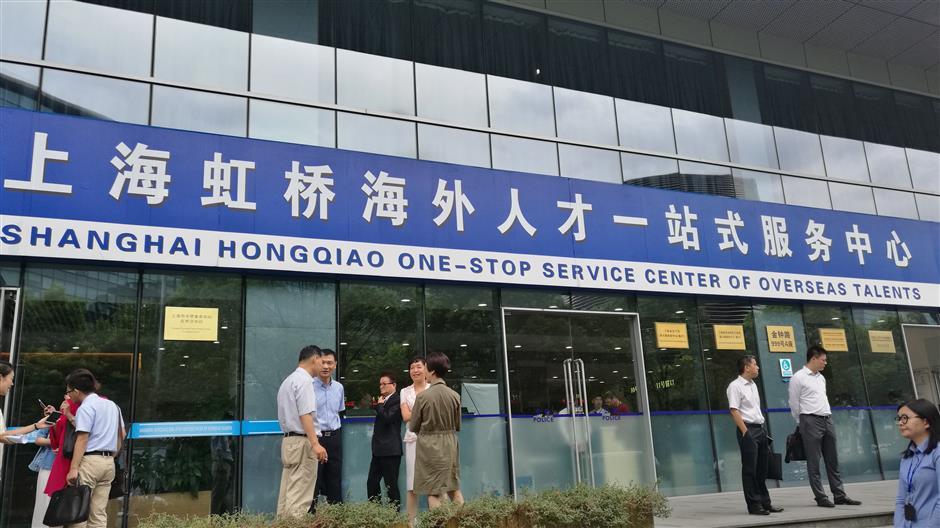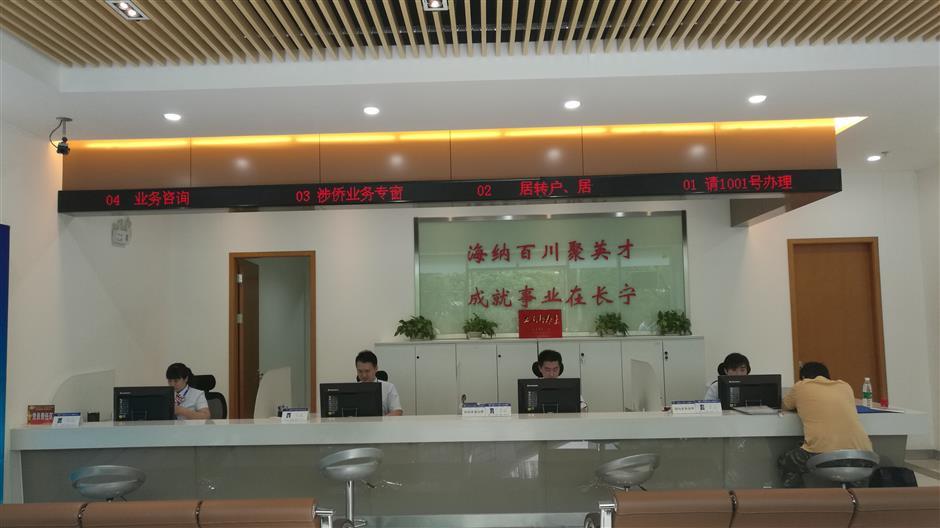Overseas Chinese get a break in Shanghai

Shanghai's overseas Chinese affairs center has opened its first branch — in Changning District — to better serve Chinese who hold foreign passports to live and work in the city.
The move is a result of a cooperation agreement between the Overseas Chinese Affairs Office of Shanghai and the Changning District government.
The aim is to attract overseas Chinese to contribute to development of the city by improving the services offered to them.
The branch, located at the Shanghai Hongqiao One-Stop Service Center for Overseas Talents in Changning, will provide consultation on policies and procedures for overseas Chinese to work and live in Shanghai.
This might include verification of their identities and those of their relatives, a local medical license application for doctors with licenses issued in other countries, or children’s enrollment in local schools.
Changning will also be able to use “Shanghai Bridge,” the city’s special program for bringing in overseas talents, to publish its talent policies, recruiting advertisements or related messages. The branch can also utilize the city office’s resources to encourage overseas Chinese to bring their startups in Changning.
The Shanghai Overseas Chinese Affairs Office and Changning District will also cooperate in organizing forums or promotion events related to overseas Chinese.
Xu Li, director of the Shanghai Overseas Chinese Affairs Office, Changning represents the first attempt of the office to open branches and the plan is to expand to other districts in the future.
“The first branch was set up in Changning as it hosts a lot of overseas Chinese,” said Xu. “In total, it has over 100,000 returned overseas Chinese and overseas Chinese who were Shanghai residents.”
Both local enterprises and the returning Chinese in the district are glad to see the new branch.
Rong He, chief executive of the engineering company Century 3, said nearly 50 senior executives at his company were returned overseas Chinese and they had found it troublesome to deal with such matters as application processing and children’s educational needs.
“We were not so clear about the policies and usually had to go to different government departments for consultation and application,” he said. “With the one-stop service branch, it will be convenient and efficient.”
Chengtie Wu, a professor at the Shanghai Institute of Ceramics, The Chinese Academy of Sciences, recalled his own experience five years ago when he came to work in Shanghai.
“The government had provided favorable policies for me as a member of Thousand Talents program, but I had no idea how to enjoy them upon my arrival,” he said. “To enroll my baby to a local school alone, I spent several months. If there was such a one-stop service center then, it would have been much easier and more convenient.”

















